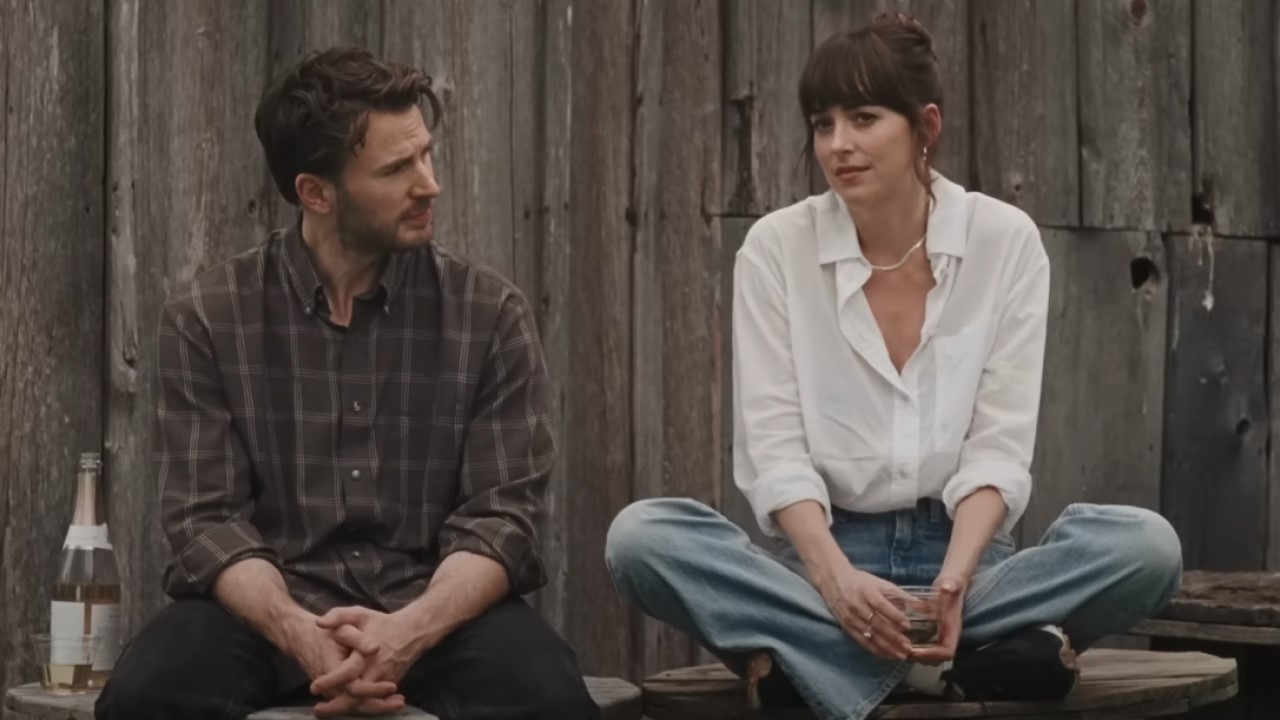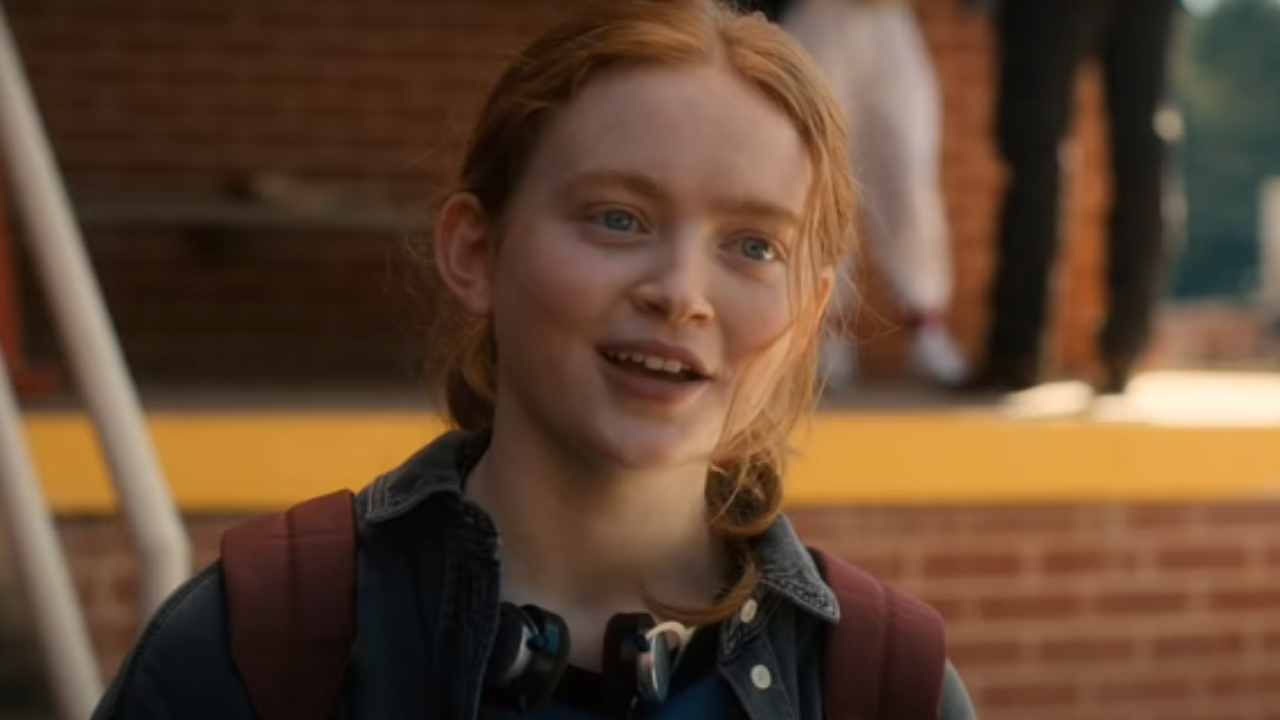When I found out Celine Song, the director and writer of Past Lives, was making a romance with Dakota Johnson, Chris Evans and Pedro Pascal, I was sold, no questions asked. I had a feeling that Materialists would be great and have something profound to say. I’m thrilled to report that’s exactly what happened.

Release Date: June 13, 2025
Directed By: Celine Song
Written By: Celine Song
Starring: Dakota Johnson, Chris Evans, Pedro Pascal and Zoe Winters
Rating: R for language and brief sexual material
Runtime: 109 minutes
This romance brilliantly plays with rom-com tropes and tells a brutally realistic yet romantic story that I think will be one for the ages thanks to the thoughtful script and direction from Song and the stellar cast she assembled.
Materialists follows a matchmaker named Lucy (Dakota Johnson) as she meets Harry (Pedro Pascal), a rich man who is working to woo her, and runs into John (Chris Evans), a very important person from her past. What follows is a deep and romantic tale about the materialistic things we desire and how they compete with our romantic and human instincts.
It’s a brilliant and real portrait of love in the modern age, and Celine Song manages to use the romance genre and its tropes to tell a new, refreshing, fierce and magical tale that left me swooning and pondering what I know about love and life.
Dakota Johnson and Chris Evans give career-best performances in Materialists.
This film centers around Dakota Johnson’s matchmaker Lucy and the juxtaposition of her work, which involves trying to find love for others, with her cynical view on romance and her own love life. Over the course of the movie, her mentality about the math of love is challenged and explained through her work as well as her relationships with John and Harry, and every step of the way, Johnson plays this flawed woman flawlessly.
Meanwhile, Chris Evans plays John, a down-on-his-luck actor who runs into Lucy while working as a cater-waiter at a wedding for one of her clients. He brings this character to life in such a vulnerable and thoughtful way that you can’t help but feel empathy for him as he struggles to figure out what direction to take. His best moments, however, come with Johnson.
Lucy and John share a past that requires undeniable chemistry, and Johnson and Evans have it. From quiet moments and longing looks to some of the best dialogue I’ve heard in a romance movie maybe ever, these two were made to share the screen. From the first moment when John walks up to Lucy with a Coke and beer in hand, there’s an unquestionable spark between them that had me on the edge of my seat while my heart burst out of my chest.
Your Daily Blend of Entertainment News
Overall, it’s impossible to deny the fact that through telling Lucy, John and Harry's cynical yet romantic story, Johnson and Evans turned in career-best performances.
Celine Song’s script uses rom-com tropes and structure to say something new and poignant.
I read and watch a lot of romance, and I was quick to clock how Celine Song uses rom-com tropes and structure to tell a story that is new and poignant. This movie is marketed as a rom-com, and in many ways, it is. The poster itself will tell you that this story focuses on a love triangle that is thoughtfully executed by Dakota Johnson, Chris Evans and Pedro Pascal.
Along with your classic love triangle, Song also utilizes other trope-y devices like meet-cutes and love confessions with ease. Moments, like one character’s tearjerking love confession to Lucy, had me thinking about rom-com classics likeWhen Harry Met Sally. However, this film also uses these tools to tell an observant and thoughtful story about the commodification of ourselves and love in an effort to find a lifelong partner.
Song fearlessly uses her rom-com to address logical and practical issues that all relationships face – like money – in a way that is real and hard to swallow at times. However, it’s also what makes this movie brilliant.
We see that through Lucy and Harry’s relationship and how they treat each other. They both analyze their romance like a business deal, and that ends up impacting their relationship in a self-aware and critical way. Meanwhile, Lucy and John grapple with their history and present relationship while clashing over this issue and how it conflicts with their feelings for each other.
By all of this being boxed into a rom-com-shaped package, Materialists forces us to think about how we pick and choose partners and what we deem important. It also asks us to question the challenges we face with our partners and test the strength of love through them.
In the end, this film is about the balance between math and magic, and Song’s script illustrates that beautifully by using tropes, structure and devices that are commonplace in the romance genre.
Materialists directly calls out how love is being treated in modern-day society and asks viewers to reexamine it.
Overall, Materialists feels like it's holding up a mirror to modern-day society and how we view finding a partner. The film unabashedly focuses on the math of love, and Lucy works with her clients to find dates who fit their qualifications. From height to age to salary, Song calls out the superficial attributes we fixate on, whether we want to or not.
Dating apps and, in this movie’s case, matchmaking services, ask people to sell themselves and buy stock in others. In this world, we are like finance bros, buying and trading ourselves like we’re money. I’d never thought about relationships that way before, and Song forced me to in a thoughtful and provocative way.
However, she also shamelessly believes in love and lets that fact shine throughout this film. Like all great romances, Materialists left me in a lovestruck daze. While Lucy might proclaim that “marriage is a business deal, and it always has been,” she also experiences the unexplainable joys and challenges that come with love.
This math of relationships and magic of love is the central conflict of Materialists, and the way Lucy juggles them is what we witness and learn from throughout the film. Overall, through Lucy’s journey, we are forced to acknowledge that love isn’t a science. It’s not really explainable, no matter how hard we try. Sometimes, as much as we want to follow the numbers, math and logic, we have to surrender what we don’t know and just accept the magic of it all.

Riley Utley is the Weekend Editor at CinemaBlend. She has written for national publications as well as daily and alt-weekly newspapers in Spokane, Washington, Syracuse, New York and Charleston, South Carolina. She graduated with her master’s degree in arts journalism and communications from the Newhouse School at Syracuse University. Since joining the CB team she has covered numerous TV shows and movies -- including her personal favorite shows Ted Lasso and The Marvelous Mrs. Maisel. She also has followed and consistently written about everything from Taylor Swift to Fire Country, and she's enjoyed every second of it.
You must confirm your public display name before commenting
Please logout and then login again, you will then be prompted to enter your display name.

